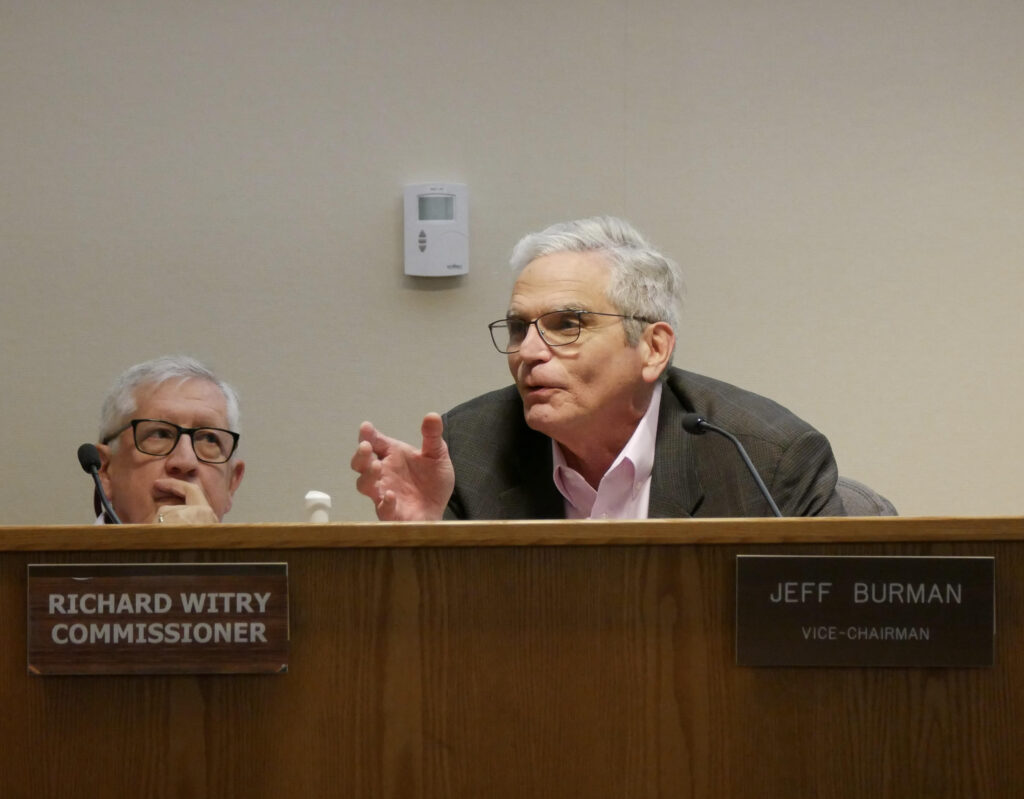A 68-townhome residential development may be built on the site of a vacant Hebrew day school after a Skokie commission agreed last week to send the project to the Village Board for final consideration.
The Skokie Plan Commission voted unanimously on Thursday, Oct. 16, to recommend that trustees allow Fulton Street Companies, a Chicago-based real-estate developer, construct three-story rental townhouses on a 3.9-acre lot of land located near the intersection of Main Street and Kilpatrick Avenue.
Arie Crown Hebrew Day School, a nonprofit that first opened a school at the site in the mid-1980s, closed the building in April this year after consolidating its campus to 7787 Gross Point Road, said Brian Levinson, a member of Arie Crown’s executive board.
Luz and Associates #1, a different developer, obtained approval from the Village Board in February 2024 to construct a significantly similar design of 68 townhomes at the same site.
That developer, however, later “folded,” and construction never began, according to Kate Portillo, a planning manager with Skokie’s Community Development Department, on Thursday.
Arie Crown still retains ownership of the vacant school building property at 4600 Main St. but has agreed to sell the property if the development moves forward, Levinson said.
If the Village Board ultimately approves the latest proposal for the site at an upcoming but yet-unscheduled meeting, the multi-family residential development will create 24 two-bedroom units and 44 three-bedroom units, all with two-car garages. The site would provide 158 total parking spaces.

The Inclusionary Housing Ordinance the Village Board passed in May 2024 requires that new residential developments of this size maintain 5% of the housing units — in this case, four housing units — at an affordable rate of rent in line with the area median income.
Fulton Street Companies, however, has petitioned to take advantage of an alternative measure allowed by the housing ordinance to make a cash payment to the village of $450,000 as “fee in lieu” of providing the four affordable units.
Seven individuals addressed the commission on Thursday with concerns or opposition to the proposed development.
Thomas Whitaker, who identified himself as a Skokie resident living on Kilpatrick Avenue, argued that the proposal “squeezes too many townhomes on the site” and urged the commission to reject the development plan as he believes it does not complement the surrounding residential area.
“To my knowledge, there are no three-story buildings adjacent to the site that overlook two-story homes, so I understand my Elm Terrace neighbors’ concerns about having multiple three-story buildings overlooking our private backyards,” Whitaker said.
Resident Emi Yamauchi expressed concern about the lack of affordable housing.
“The period of validity for their permits has lapsed and I believe that the whole project deserves a full review, primarily because if we really want to have an inclusive, welcoming Skokie, we should be looking at a balanced housing market,” she said.
“Right now, all I see are luxury, high-rent apartments being constructed with no on-site affordable housing. Four hundred thousand dollars is chump change for any kind of construction work,” Yamauchi said in reference to the developer’s “fee in lieu” of affordable units.
Levinson, who also serves on Skokie’s Economic Development Commission, argued the proposed development would help revitalize Main Street and drive economic development in the village.
“There are a number of neighbors that are not happy. All of us would love to have an open park, lots of space around us, but the positives that this will bring for the greater village, I believe, far outweigh what some of those negatives are,” Levinson said.
Portillo informed the commission that village staff recommended approval of the site plan, in part because added infrastructure to the site is expected to improve water pressure to the area and the removal of school-related restrictions should improve the availability of surrounding on-street parking.
The project would also increase property tax revenue on an otherwise vacant site, said Portillo, who also added that updated traffic analysis does not anticipate the residential development would create “undue traffic congestion,” but instead lower daily traffic volume than the property’s previous use as a school.
Alluding to a version of the development approved in 2024 and expressing concerns about the project being further “cheapened” in materials or design, Commissioner Scott Berman motioned for the proposal to gain approval only if it remains in substantially the same condition as presented.
After a debate among the commissioners over the extent of the Skokie Plan Commission’s authority, however, Berman withdrew his motion.
The Record is a nonprofit, nonpartisan community newsroom that relies on reader support to fuel its independent local journalism.
Become a member of The Record to fund responsible news coverage for your community.
Already a member? You can make a tax-deductible donation at any time.
link

